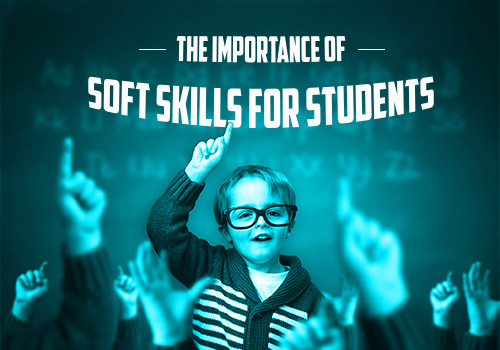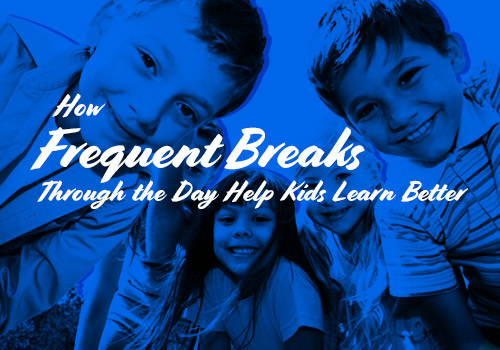Undoubtedly, students of today are the future employers and employees of profitable global businesses.
For students to stand out as promising assets to multinational organizations, they need to invest in the sharpening of what are labelled as soft skills.
Get Best Free Student Apps (Check it Now)
These abilities which are linked to personality traits are a host of interpersonal capabilities that will help the present day students to transform into outstanding corporate resources.
So, if students are looking to establish a successful professional career, here are the numerous ways in which soft skills are important for them to enjoy an edge over others who are not abreast with these life-changing “people skills”.
- Students Develop Emotional Intelligence
It takes all sorts of students to make up a class. While some students demonstrate a high level of emotional intelligence, there are others who lack this ability.
Emotional intelligence is all about how amicable you as a student are with others. With a high emotional intelligence quotient, you will be looked upon as an easy-to-work with student.
Through soft skills training programs, students will be able to better handle interpersonal relationships with a strong sense of empathy. They will also be in a favorable position to monitor the emotions of others so as to come up with well-informed perceptions about others’ behavior and thinking patterns.
Leaving no room for prejudices, students through the sharpening of soft skills can also become strong influencers in the lives of students with a low emotional intelligence quotient.
Such students will be able to look at every situation in an objective manner, without attaching any pre-conceived judgments about others.
- Nurture Interpersonal Relationships
A classroom is an educational entity which calls for a great deal of interaction between students. Once students constantly engage in interactions during class hours or in the event of completing a group assignment, they will befriend others.
Given the fact that man is a social being, mutual interactions between students pave the way for a strong educational base supported by a healthy competitive environment in the classroom.
Classroom behavior is an important aspect to nurture interpersonal relationships. While some students emulate the good behavior of others, there are others who need to be taught about the acceptable decorum of a class.
It is this concept of social etiquette that is brought to the fore for students to not only make friends but also interact with each other with a sense of empathy.
Students who befriend others stand to gain a lot in the form of friendly conversations and an emotional support that they can bank upon at all times.
Thus empathy is one such soft skill that will take students places and keep them in good stead with any sort of study group.
- Better Understanding of Classroom Lectures
Students step into a class with the prime aim of learning new things and subjects that are of interest to them. In keeping with this primal need of students, soft skills come handy as instruments that will make learning interesting and fruitful.
With soft skills, students will be able to adapt themselves to different teaching and learning patterns and will try to assimilate what all is taught in class. Students can solve problems employing the principles of soft skills while staying inquisitive about their surroundings and their subject matter.
Allowing them to interpret and explain their inferences, students through soft skills will be able to uncover the steps they need to take to face challenges.
- Unveil the Leadership Qualities in Students
There are plenty of students who are born leaders. For all such students who lack the spirit of leadership, soft skills come in as handy tools. Followers can turn into leaders when they start sharpening their soft skills.
Through soft skills trainings, students will be able to motivate themselves to take on leadership roles so as to attract the attention of others.
Students who lead from the front will be able to impress upon the faculty and their peers that they have it in them to successfully complete a project right from the start until its fag end. A sense of trustworthiness will also emerge when you begin to assess the leadership qualities in other students. Additionally, assertiveness is a soft skill that will help you stand your ground as a leader about a particular issue that concerns your college or class.
- Improvements in How Students Communicate
A sense of self-confidence is evident with all such students who have absorbed soft skills as their new-found DNA. While such students not only demonstrate a high level of adaptability with changing situations and study groups, they will also be able to better express themselves in college forums and inter-collegiate debate and elocution competitions.
Communication skills, tagged as one of the essential traits to succeed not only as a promising student but also as a potential employment resource are bestowed to students who sign up for soft skill training. Team spirit is a soft skill that should be inculcated by every student to become a team player, especially concerning the submission of group activities. Every student begins to work with the ultimate goal in mind and communicates in the right manner for the benefit of the entire class.
- Time-Tested Tools To Ace in Examinations
Come exam time and students are seen hooked to their text books and other study materials. All those students who are either blessed with soft skills or have worked on building their soft skills will stand to gain during examinations.
You can employ your problem solving skills coupled with your innate ability to express yourself better and do well in exams. A number of soft skill trainings not only help you better prepare for the questions that will appear in the question paper, they will also bring in a host of thinking skills that can help you crack numeric and quantitative problems.
- Goal Setting and Target Achievements
Students will learn the importance of setting academic goals for themselves along with the pride that they enjoy upon meeting their targets.
Bringing to the fore the human traits of commitment, enthusiasm and motivation, students will make the most of their classroom sessions to meet their scholastic goals.
It is not only about having a goal. It is also about articulating your goal so that it comes as a reminder to you with every breath you take. Shunning away the instances of day-dreaming when students simply engage in wishful thinking about their ambitions, soft skills help students fulfill all their ambitions.
- Unleash The Hidden Potential in Students
All thanks to soft skills, students are now in a sweet spot to uncover their hidden potential that was lying dormant in them. Every student brings to the table a host of talents that amaze both the educators and their parents. Most of the times, the hidden talents of students are brought to light during some unexpected instances.
While some students are blessed with a high degree of creativity, there are others who demonstrate excellent organizational skills. There are others who always sport the aura of positivity, wherever they go. All these are talents that will help students uncover their strongest abilities that haven’t seen the light of the day.
- A Strong Commitment to Student Life
A day in the life of a student introduces him/her to a myriad new things that cannot be learnt through printed text books. One should live it to believe it.
Once soft skills become a part of student life, they will help them lead a self-disciplined life that revolves around the educational values that should be inculcated by them. Students will tread the path of education with a strong positive attitude coupled with an undeterred commitment towards their ultimate goal.
Soft skills keep students motivated to perform better in their academics. This motivation manifests in the form of a positive body language.
Interest in educational curriculum will be evident when students maintain an eye-to-eye contact with the faculty, sit erect in class and abstain from chatting with friends during a lecture. These are all the advantages of soft skills in the life of a student.
- A Steady Push to Your Presentation Skills
Presentations are part and parcel of student life. You as a learner will be asked to address the class and share your inferences or opinions about a particular topic that is discussed in class. Not only does this call for strong oratory skills but also superior writing skills.
Allowing students to not only form opinions about various subjects, they are also encouraged to stand up and voice their opinions to a gathering.
It is this power of written and oratory expressions that is bestowed by incorporating soft skills into the daily routine of students.
The Take-Home Advice
All in an attempt to secure your professional career, you as a student will have to tread the path of sharpening your interpersonal skills. Only then will you demonstrate the traits of commitment, goal-consciousness, enthusiasm and motivation.
Get Best Free Student Apps (Check it Now)
All these positive abilities will become the pillars of support to settle down in a respectful and highly satisfying employment that every student dreams of.
Once you have mastered these soft skills, you can go ahead and sport these on your resume so as to attract the attention of hiring managers scouting for skilled and confident resources.

